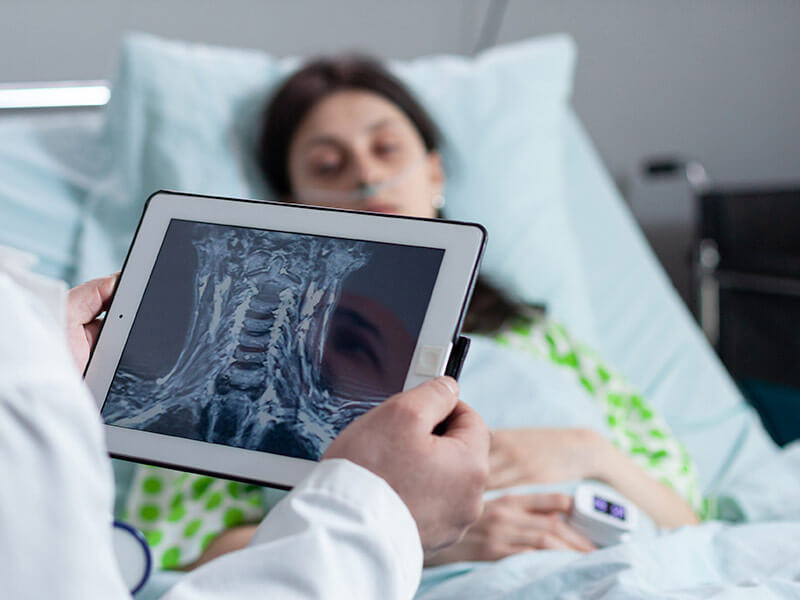Dr Thomas Crowhurst
Sleep study



Dr Crowhurst facilitates hospital-based or home-based sleep studies depending on patient needs and preferences. Your sleep study should provide diagnostic clarity, revealing the nature and severity of your sleep disorder and informing discussions around treatment options.
Typical symptoms that lead patients to a sleep study include snoring, reports of the temporary cessation of breathing in sleep (observed apnoeas), unrefreshing sleep, excessive daytime sleepiness, restless legs or abnormal limb movements in sleep, or concern about sleep walking or other abnormal sleep behaviour. A sleep study can also be recommended to assess other medical problems due to proven links between obstructive sleep apnoea and these disorders, such as hypertension and atrial fibrillation.
A sleep study, or polysomnogram, is the key investigation required to diagnose many sleep disorders. This is a complex investigation that involves overnight measurement of a range parameters including airflow, chest and abdominal movement, peripheral oxygenation, brain wave activity (electroencephalography), eye movements (electro-oculography), muscle tone (chin and limb electromyography) and body position among other things. The patient begins the test in the evening and completes it in the morning upon waking; there is a small risk of test failure, more common for home-based sleep studies, and this requires the investigation to be repeated.
More sophisticated monitoring can be undertaken during ‘level 1’ hospital-based sleep studies including measurement of transcutaneous carbon dioxide, video monitoring (e.g. for parasomnias) and titration of positive airway pressure therapy. Hospital-based sleep studies have a lower rate of technical failure. After a thorough clinical assessment, Dr Crowhurst will provide advice on the most appropriate sleep study pathway in your individual circumstances.
Sleep laboratories located within hospitals are also able to perform a range of other sleep studies to investigate for specific sleep problems. One example is the Multiple Sleep Latency Test, which enables identification of pathological tendency to sleep, being a hallmark of narcolepsy and idiopathic hypersomnolence.
Dr Crowhurst can arrange hospital-based sleep studies at North Eastern Community Hospital, the Oasis Sleep and Wellness Centre, Burnside Hospital and Glenelg Community Hospital. He can arrange home-based sleep studies to any location (please note courier charges may apply for very remote locations).
More patient information regarding sleep studies can be found at the Sleep Health Foundation.

